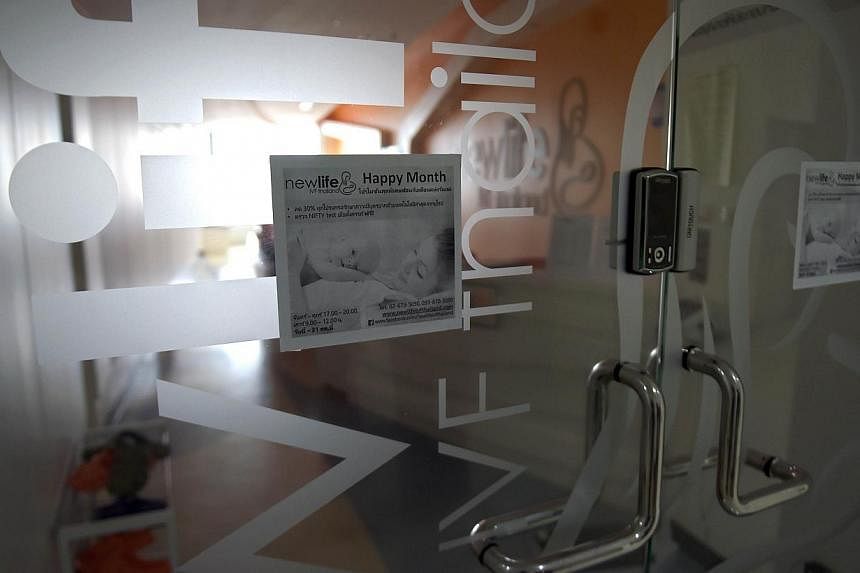BANGKOK (Reuters) - Australia urged Thailand on Friday to allow Australian couples with babies born by Thai surrogate mothers to return home with their children following a crackdown on commercial surrogacy that has left many couples in limbo.
Foreigners attempting to leave Thailand, a top destination for infertile couples wanting children, have been prevented from doing so in recent weeks following a spate of surrogacy scandals that have shone a spotlight on Thailand's largely unregulated "wombs for hire" business of commercial surrogacy.
United States and Australian couples were turned away at airports earlier this month when attempting to leave with officials telling them they needed to get clearance from Thailand's family courts to formally take custody of the babies. "For those who are caught by these transitional arrangements it is obviously a matter of some high concern and we wish to find a fair and workable means of resolving this issue," Mr Peter Varghese, Secretary of the Department of Foreign Affairs and Trade, told a news conference in Bangkok on Friday.
"I'm confident that we will be able to find a practical way forward that respects the best interest of the child and the birth mother," said Mr Varghese, adding there are 200 Australian surrogacy cases in Thailand each year.
The darker side of Thailand's lucrative surrogacy industry was thrust into the international spotlight last month when a Thai surrogate mother accused an Australian couple of abandoning their Down's syndrome son, and taking only the healthy twin sister.
There are currently no laws surrounding commercial surrogacy but a draft law that would make it a criminal offence has been given preliminary approval.
Until recently, with no laws governing commercial surrogacy, the relative ease and lower price made it an attractive destination for foreign couples. "The intention of the draft is they would like to prohibit foreign couples to come to Thailand for surrogacy arrangements, but it is not clearly stated in the law," said Mr Nandan Indananda, partner at Tilleke & Gibbons law firm in Bangkok and a lawyer speciliasing in legal issues surrounding surrogacy in Thailand.
The Thai military council, formally known as the National Council for Peace and Order, has ordered raids on a number of clinics suspected of carrying out surrogacy procedures illegally. Several have been shut down.
Critics say making commercial surrogacy illegal could push the industry underground, making it harder for patients to access quality physicians and medical care.

